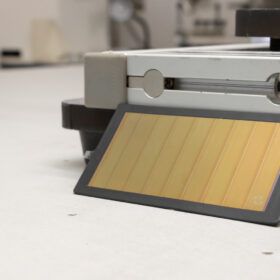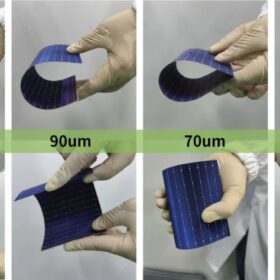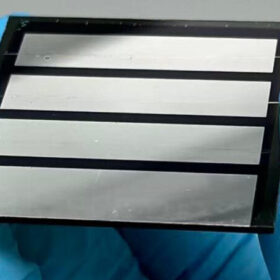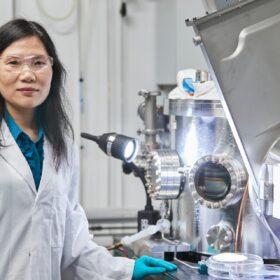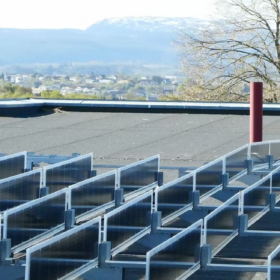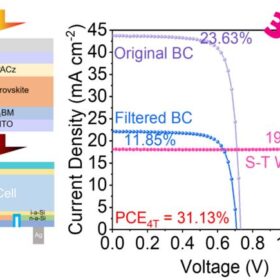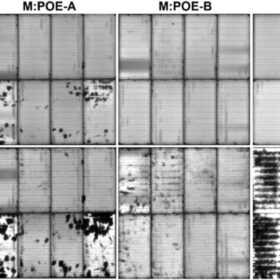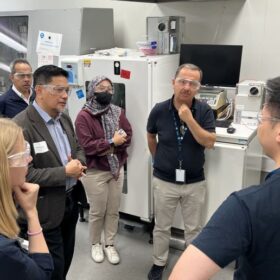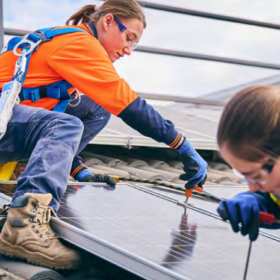Australian-made perovskite cell manufacturing gets boost with new MOU
Next-generation solar innovator Halocell Energy is set to benefit from the development of a sovereign supply chain for high-purity precursors to perovskite after signing a memorandum of understanding with Queensland advanced materials company Lava Blue.
Ideal Energy commissions AI-enabled flexible HJT pilot line for space
China-based PV equipment supplier Ideal Energy Sunflower Semiconductor has completed an AI-enabled pilot line for ultra-thin, flexible heterojunction solar cells, targeting lightweight power systems for space and near-space applications.
Scientists achieve 25.4% efficiency in perovskite solar cells with enhanced stability using multivalent ligands
Researchers have used multivalent amidinium ligands to boost perovskite solar cell efficiency to 25.4%, achieving over 95% stability after 1,100 hours at 85 C. The proposed approach enables controlled low-dimensional passivation layers, offering a practical route for durable, large-area perovskite devices.
UNSW team sets efficiency record for emerging solar cell material
Researchers at the University of New South Wales have achieved a record-setting power conversion efficiency with solar cells made from antimony chalcogenide, an emerging PV material regarded as a strong candidate for next-generation solar technology.
Smart Commercial to roll out prefabricated vertical rooftop PV system
Smart Commercial Energy has unveiled a new prefabricated vertical rooftop solar system for the Australian market as part of a collaboration with Norwegian clean energy company Over Easy Solar.
Chinese scientists build 31.13%-efficient perovskite-silicon tandem solar cell via 2D seeding agent
Researchers in China developed a novel two dimensional seeding agent to regulate crystallisation in a 1.80-eV wide-bandgap perovskite film. A perovskite-silicon tandem device made with the resulting optimised subcell achieved an efficiency of 31.13%, outperforming a control device.
Study shows some POE encapsulants pose threat to TOPCon solar modules
University of New South Wales researchers found that some POE encapsulants can trigger severe corrosion in TOPCon solar modules, causing up to 55% power loss under damp-heat conditions. Their study highlights that module reliability depends on the exact encapsulant formulation, not just the polymer type.
World’s biggest battery-electric ship begins harbour trials
Incat Tasmania has started harbour trials of the largest battery-electric ship constructed to date with the 130-metre vessel moving under its own battery-electric propulsion for the first time.
CSIRO puts battery chemistries to test in tropical conditions
Researchers from Australia’s national science agency have teamed with Malaysian authorities to explore how different battery chemistries perform under tropical stressors like heat, humidity and corrosion, and what this means for durability, safety and cost-effectiveness.
Researchers achieve record perovskite solar module stability under light, heat, and UV stress
An international research team has developed a new two-dimensional perovskite interlayer based on a co-crystal engineering strategy for more robust perovskite films. It demonstrated improved performance in small area perovskite solar cells and, in a 48 cm2 module, contributed to retain 95% of initial efficiency after 5,000 h.
